I'm tired of being Jim Crowed, gonna Leave this Jim Crow town
Doggone my black soul, I'm sweet Chicago bound
Yes I'm leaving here from this old Jim Crow town
I'm going up North where they say money grows on trees
I don't give a doggone if my black soul is free
I'm going where I don't need no baby
I got a hat, got a overcoat, don't need nothing but you
These old easy walkers going to give my ankles the blues
But when my girl hears about this, oh, that will be sad news.
I'm going up North, baby I can't carry you
Ain't nothing in that cold up there a ?? can do
I'm gonna get me a Northern girl, see that I am through with you Lord
But if I get up there, weather don't suit, I don't find no job
Go and tell that boss man of mine,
Lord I'm ready to come back to my Jim Crow town
Doggone my black soul, I'm sweet Chicago bound
Yes I'm leaving here from this old Jim Crow town
I'm going up North where they say money grows on trees
I don't give a doggone if my black soul is free
I'm going where I don't need no baby
I got a hat, got a overcoat, don't need nothing but you
These old easy walkers going to give my ankles the blues
But when my girl hears about this, oh, that will be sad news.
I'm going up North, baby I can't carry you
Ain't nothing in that cold up there a ?? can do
I'm gonna get me a Northern girl, see that I am through with you Lord
But if I get up there, weather don't suit, I don't find no job
Go and tell that boss man of mine,
Lord I'm ready to come back to my Jim Crow town
inviata da Bartleby - 13/9/2011 - 09:45
Lingua: Italiano
Versione italiana di Marcello Tagliabue
Registrato a Chicago, gennaio 1927.
Cow Cow Davenport (vocal e pianoforte), B.T. Wingfield (cornetta)
Registrato a Chicago, gennaio 1927.
Cow Cow Davenport (vocal e pianoforte), B.T. Wingfield (cornetta)
Sono stanco di tutto questo razzismo, lascerò questa città razzista,
maledetta la mia anima nera, sono diretto verso la mia cara Chicago,
sissignore, me ne vado da questa vecchia città razzista.
Sto andando su al nord, dove dicono che i soldi crescono sugli alberi,
non me ne frega niente se la mia anima nera è fredda,
sto andando dove non ho bisogno di ragazze.
Ho un cappello, un cappotto, non ho bisogno di nient'altro se non di te,
queste vecchie scarpe comode mi faranno venir male alle caviglie,
ma quando la mia ragazza lo verrà a sapere, oh, per lei sarà una triste notizia.
Vado sul nord, tesoro, non posso portarti,
non c'è niente che una ragazza possa fare in quel freddo paese lassù,
mi troverò una ragazza del nord, Signore, vedi che che ho chiuso con te.
Ma se arrivo lassù, e il tempo non è favorevole, e non trovo lavoro,
vai a dire a quel mio capo
che, Signore, sono pronto a tornare nella mia vecchia città razzista.
maledetta la mia anima nera, sono diretto verso la mia cara Chicago,
sissignore, me ne vado da questa vecchia città razzista.
Sto andando su al nord, dove dicono che i soldi crescono sugli alberi,
non me ne frega niente se la mia anima nera è fredda,
sto andando dove non ho bisogno di ragazze.
Ho un cappello, un cappotto, non ho bisogno di nient'altro se non di te,
queste vecchie scarpe comode mi faranno venir male alle caviglie,
ma quando la mia ragazza lo verrà a sapere, oh, per lei sarà una triste notizia.
Vado sul nord, tesoro, non posso portarti,
non c'è niente che una ragazza possa fare in quel freddo paese lassù,
mi troverò una ragazza del nord, Signore, vedi che che ho chiuso con te.
Ma se arrivo lassù, e il tempo non è favorevole, e non trovo lavoro,
vai a dire a quel mio capo
che, Signore, sono pronto a tornare nella mia vecchia città razzista.
inviata da Marcello Tagliabue - 24/10/2025 - 22:14
×
![]()

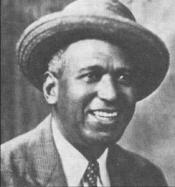

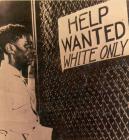


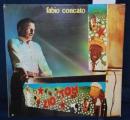
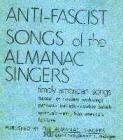
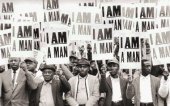
Il blues non esisterebbe senza “Jim Crow”.
Con questo nome viene indicato il sistema istituzionale legislativamente fondato sul presupposto della disuguaglianza e segregazione razziale che fu in vigore negli States dal 1876 (ma di fatto dalla loro costituzione) al 1965 e che ha reso la vita un inferno per gli afro-americani specialmente negli Stati del sud. Il nomignolo "Jim Crow" è da far risalire a "Jump Jim Crow", canzonetta popolare del 1828 di tal Thomas Dartmouth (T.D.) "Daddy" Rice, un cabarettista bianco che la interpretava truccato da afroamericano.
E Charles “Cow Cow” Davenport, pianista e cantante nero originario dell’Alabama profonda, sapeva bene di cosa parlava quando a Chicago - al nord, oltre la “Mason-Dixon Line” che per gli afro-americani idealmente separava la schiavitù dalla libertà - nel 1927 incise questo brano per la Paramount, accompagnato da B.T. Wingfield alla cornetta: una grande speranza, quella di lasciarsi alle spalle soprusi, angherie e KKK e di andare al nord dove “i soldi crescono sugli alberi”; una grande delusione, chè nelle fredde città del nord non c’è lavoro per un negro perché “Jim Crow” è dappertutto.
Al proposito si vedano anche I Don't Want No Jim Crow Coffee, Jim Crow e Northbound Blues.